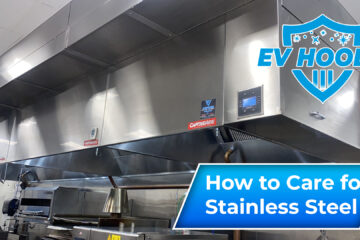In the bustling environment of a commercial kitchen, cleanliness and safety are always top priorities. Among all the equipment that requires regular maintenance, the vent hood system is perhaps one of the most crucial. But why is it so important to clean vent hood systems frequently? In this article, we will explore why regular vent hood cleaning is essential for kitchen safety and for meeting health regulations.
Safety: Reducing Fire Hazards
One of the primary reasons for cleaning the vent hood system in a commercial kitchen is to minimize the risk of kitchen fires. During the cooking process, grease, oils, and food particles accumulate in the hood, ductwork, and filters. This grease build-up creates a highly flammable layer that can easily ignite if it comes into contact with high heat or open flames, which are common in busy commercial kitchens. A single spark can turn into a full-blown fire, putting both staff and customers at risk.
Regular vent hood cleaning ensures that this dangerous layer of grease and residue is removed, significantly reducing the potential for fire. By keeping the exhaust system free of debris, you protect not only the kitchen but also the entire establishment from the threat of catastrophic damage.
Compliance with Health and Safety Regulations
Every commercial kitchen is required to comply with strict health and safety regulations, and failing to meet these requirements can lead to hefty fines, legal actions, and even forced closures. Health inspectors pay close attention to kitchen exhaust systems because of their role in maintaining air quality and preventing fire hazards. Dirty vent hood systems can lead to poor ventilation, resulting in excessive smoke and odors, which can negatively impact both employees and patrons.
By scheduling regular professional cleanings of your vent hood system, you can ensure compliance with local health codes and industry standards. This will not only help you avoid penalties but also build a positive reputation as a responsible, health-conscious establishment. Staying compliant with regulations demonstrates your commitment to the well-being of your staff, customers, and community.
Maintaining Air Quality and Efficiency
A clean vent hood system also plays a key role in maintaining air quality and ensuring the overall efficiency of your kitchen. When grease and debris accumulate in the exhaust system, it becomes harder for the ventilation to function effectively. This can lead to poor air circulation, causing smoke, odors, and even carbon monoxide to linger in the kitchen area. Poor air quality can make the kitchen an uncomfortable place to work and may even cause health issues for staff, such as respiratory problems.
Regular cleaning of the vent hood and exhaust system allows for proper ventilation, making sure smoke and contaminants are effectively removed from the kitchen. This helps maintain a healthier working environment for chefs and kitchen staff, boosting productivity and ensuring that everyone can work comfortably and safely.
Prolonging the Life of Your Equipment
Commercial kitchen equipment represents a significant investment, and regular maintenance is key to protecting that investment. A clean vent hood system not only helps avoid dangerous conditions but also prolongs the life of your equipment. When grease is allowed to build up, it puts extra strain on fans, filters, and other components, which can lead to costly repairs or replacements.
Regular professional cleaning keeps all components of the exhaust system functioning smoothly, which means fewer breakdowns and a longer lifespan for your kitchen equipment. This preventive approach can help save you money in the long run by reducing maintenance costs and avoiding unexpected repairs.
If you want to ensure that your commercial kitchen is as safe and clean as possible, consider contacting a professional vent hood cleaning service like EV Hoods. Our team is ready to help you maintain your kitchen and keep everything running smoothly, so you can focus on cooking and satisfying your customers.
